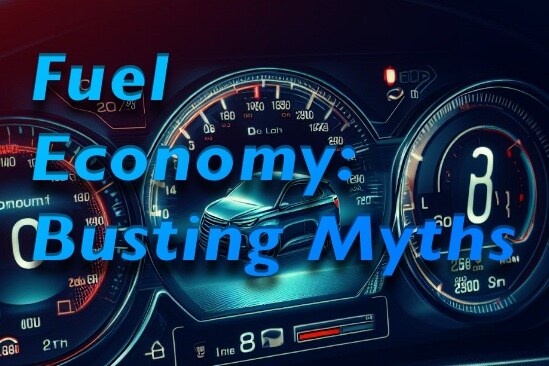
Fuel economy can be one of the most important factors to consider when buying a used car. With gas prices on the rise, everyone is looking for ways to save money at the pump, but there are a lot of myths and misconceptions about fuel economy out there - so, what's the truth? Let’s explore some common misconceptions regarding vehicle fuel economy and help you become a more educated shopper.
Myth: All hybrid cars get great fuel economy
Fact: Though they DO outperform their fuel-only namesakes, not all hybrid cars are created equal. Some hybrids naturally get better fuel economy than others, but the thing to keep an eye on is highway mileage, as the primary strength of hybrids are their operation in stop and go traffic conditions. If a good percentage of your driving involves freeways you could potentially do just as well – if not better – with gas.
Myth: You need to buy a new car to get good fuel economy
Fact: There are plenty of used cars that get great fuel economy. In fact, some used cars get even better fuel economy than new cars despite advances in fuel efficiency technology. Vehicles have become heavier over the years as they bulk up with tech, creature comforts, and higher sightlines. This added inertia needs to be made up for, and though efficiency has improved overall, you can still go back a couple decades and find models earning 40 mpg.
Myth: Smaller cars always get better fuel economy than larger cars
Fact: It's true that smaller cars generally get better fuel economy than larger cars (as we just discussed inertia above), but there are exceptions. For example, a Toyota Sienna minivan gets better fuel economy than a Ford Fiesta subcompact car. This can be due to a variety of factors, but it’s often down to the engine, transmission, or even both. A weak engine may require you to have a heavy foot to get it to perform, and a transmission with fewer gears from which to select can trade a punchy low-end for an inefficient high-end. That’s not even mentioning the sometimes inefficient turbo chargers attached to certain models that don’t quite make up for the engine’s lack of power OR efficiency.
Myth: You need to drive carefully to get good fuel economy
Fact: While it's true that driving habits affect fuel economy, you don't need to drive at a snail’s pace to get the most from every last drop. There are a few simple things you can do to improve your fuel economy, such as avoiding jackrabbit starts and hard braking, coasting to a stop when possible, and using cruise control on the highway. Your transmission has sweet spots within the powerband of each gear, and if you’re on the low-end you can actually find yourself using more fuel to drive slower.
Tips for buying a used car with good fuel economy
When you're shopping for a used car, there are a few things you can do to make sure you're getting a car with good fuel economy:
-
Do your research. Look up fuel economy ratings for different models of cars online.
-
Ask your salesperson about the car's fuel economy.
-
Test drive the car. This will give you a chance to see how the car handles and how much fuel it uses.
By following these tips, you can find a used car that gets great fuel economy and saves you money at the pump.